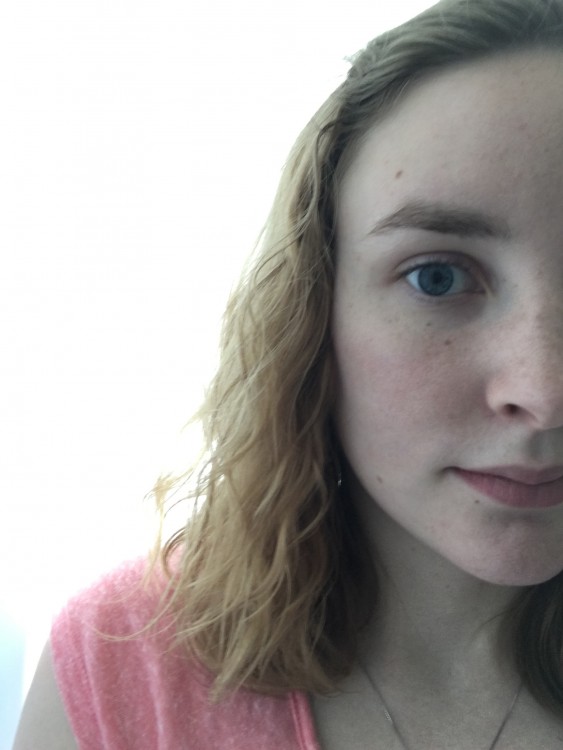When people see me read within five inches from my face, they ask me, “Do you wear contacts?” or “Do you have glasses at home?” To which I say yes, and then they have a look of confusion on their faces.
For most people, vision is something that can and must be fixed. They snap on some contacts or glasses and have 20/20 vision. For me, my retinas are scarred and can only be changed so much.

At this point in my life, I’m tired of people treating my vision as if it’s broken. I have done what I can to adapt to my surroundings, and I live a happy life. When I tell people how my eyes work, they feel sorry for me.
I know I can’t get frustrated with this, though, because most people don’t understand what it means to be legally blind. Legal blindness is when your visual acuity is 20/200 or lower, with or without corrective lenses. It’s sort of a spectrum of conditions. No one person’s vision is the same, or happened the same way, but one thing we share is the stigma behind it — that we should fix ourselves.
In my case, I have congenital varicella syndrome, nystagmus and I’m near-sighted. When my mom was pregnant with me, she had chicken pox during her first trimester and it scarred my retinas. My vision won’t weaken and can only be corrected to 20/200 and 20/400.
For those who don’t understand what this means, let me explain: Something that’s 20 feet away from you appears to be 200 or more feet away from me. I wear contact lenses to help me see details further away, but I see better close up without any lenses.
I don’t focus on the distant blurs, however. I choose to focus on what is in front of me and my better senses. My sense of smell and hearing are heightened because they compensate for my vision. When someone doubts my ability to complete a task, I prove them wrong. I am strong. This is a part of me, and I never let my disability hold me back.
Living with low vision is often a struggle, but it can be transforming. Those who are legally blind are stuck between a culture of full blindness, where people use Braille to read, and total sight and never needing aids.
We are in the grey area of blindness, and we’re pressured to choose a side: blindness or normal vision. I have good days where I’m an advocate for the visually impaired, and other days I’m filled with self pity. It happens.
But when I am asked the million-dollar question, “If you could have surgery to fix your eyes, would you do it?” I have to say no. Why should I have to feel sorry for myself and fix part of my identity? I was born this way, and I can’t help but think there’s purpose in it.
I wasn’t meant to live a life where I have to feel broken. I’m not bashing on those who have undergone surgery to help their conditions, but I don’t believe people with disabilities should feel pressured to be “fixed.” If a person chooses to undergo surgery, therapy or anything else, let it be from personal choice and not because of a cultural stigma. We are beautiful, not broken.
The Mighty is asking the following: What’s one thing people might not know about your experience with disability, disease or mental illness, and what would you say to teach them? If you’d like to participate, please send a blog post tocommunity@themighty.com. Please include a photo for the piece, a photo of yourself and 1-2 sentence bio. Check out our Submit a Story page for more about our submission guidelines.
